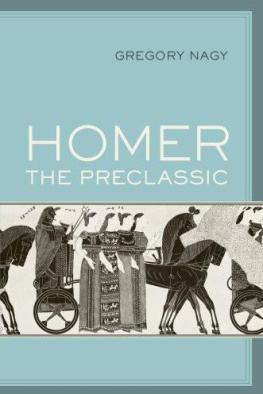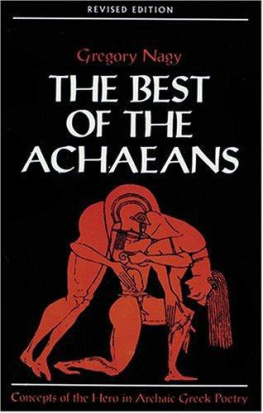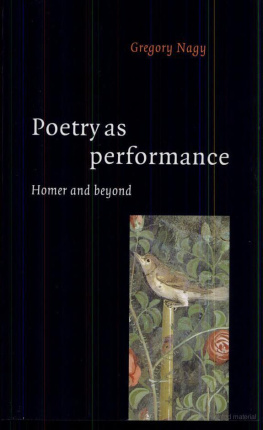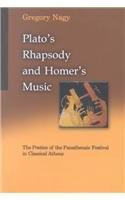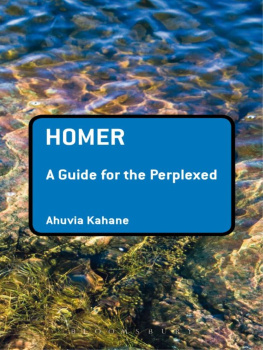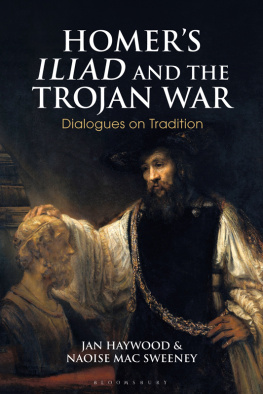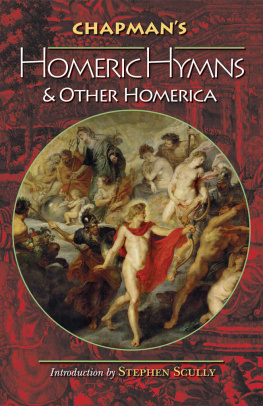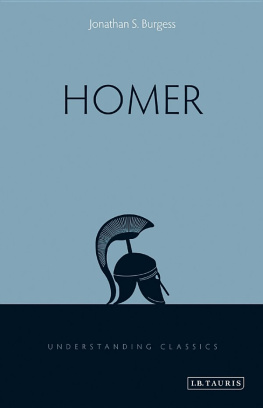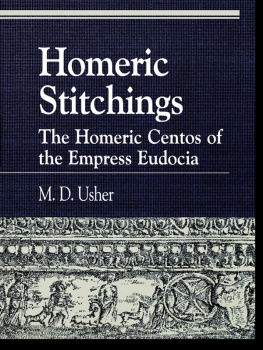The on-line publication date for this book is 2008, since it was born digital in that year on the website of the Center for Hellenic Studies. The print publication date is 2009.
In this on-line version, the page-numbers of the printed version are indicated within braces ({ and }). For example, {69|70} indicates where p. 69 of the printed version ends and p. 70 begins. These indications will be useful to readers who need to look up references made elsewhere to the printed version of this book.
There are many people I want to thank for helping me so many that I am unable to list them all here. The footnotes, at least, include detailed acknowledgments of some of them. Special thanks go to Valerie Woelfel for her line drawings. In general, I thank my colleagues and friends for all their support. Four names stand out: Christopher Dadian, Soo-Young Kim, Leonard Muellner, and Jill Curry Robbins. My debt to these four is beyond measure.
Prolegomena: A classical text of Homer in the making
P1. The Homeric Koine
P1 Homer the Classic centers on ancient concepts of Homer as the author of a body of poetry that we know as the Iliad and Odyssey. This body of poetry, this corpus, became a classical text, but it started as something else. That something, as I have argued in earlier projects, is oral poetry. In the present project, however, my aim is not to reassess the Homeric corpus as oral poetry. Rather, I aim to show how the Homeric Iliad and Odyssey became a classic in the days of the Athenian empire and later.
P2 I will clarify what I mean by the concept of Athenian empire as my argumentation proceeds. I need to say from the start that I could have described the historical reality behind this concept in a variety of alternative ways, steering clear of the English word empire, but I prefer to use this particular word in the light of its derivation from the Roman idea that we translate as empire, imperium. As for the specific concept of an Athenian empire, I focus on another word, a Greek word:
koin () / plural koinai () common, standard
The plural form koinai was once used as a substantive in referring to texts of Homer that were common, standard. The concept of a common or standard text of Homer, to which I will refer hereafter simply as Koine, is central to my overall project. It comes closest to capturing what I mean by classic in the title Homer the Classic.
P3 At first glance, my formulation seems anachronistic. Homer, we may be saying to ourselves, does not speak for the Athenian empire. By the time we reach the last chapter of this book, however, we will see that Homer does exactly that: he actually does speak for the Athenian empire as far as Athenians in the fifth century BCE were concerned. In that age, Homer was {1|2} a classic, an Athenian classic, and Homers poetry gave meaning not only to civilization in general but to the Athenian empire in particular. The Athenian version of Homer is shaped by the idea of a unified text of Homer, a Homeric Koine. This idea of a Homeric Koine, a text that is both common and standard, matches the idea of a society that is both democratic and imperial.
P4 I plan to show how the multiple koinai or common texts of Homer, as they were known in the city of Alexandria around the middle of the second century BCE, stem from a notionally singular Athenian Koine or standard version of Homer that goes as far back as the era of the Athenian empire in the fifth century BCE.
P5 Beyond the Athenian Koine, the Homeric tradition can be traced all the way back to a poetic lingua franca current already in the Bronze Age, in the second millennium BCE. Athenians who lived in the middle of the first millennium BCE imagined this remote age as the era of the so-called Minoan thalassocracy, the maritime empire of King Minos of Crete, who supposedly lived in the second millennium BCE. The very idea of a Homer who knew about such a remote age, however, is beyond reach without an intermediary. For me that intermediary is the idea of Homer in the age of the Athenian empire. That idea converges with what I am calling the Homeric Koine. To grasp that idea is the objective of this book, as reflected in the title Homer the Classic.
P2. Twin books about six ages of Homeric reception
P6 Homer the Classic (HC) is complemented by the twin book Homer the Preclassic (HPC), which covers the vast prehistoric era that led to the formation of the Homeric Koine. These two books, between the two of them, cover six ages of Homeric reception. These six ages correspond to six lectures I gave in the spring semester of 2002 at the University of California at Berkeley while I was teaching there as the Sather Professor for2001/2. Here are the six ages, arranged in a sequence going backward in time:
HC ch. 1. Homer the Classic in the age of Virgil
HC ch. 2. Homer the Classic in the age of Callimachus
HC ch. 3. Homer the Classic in the age of Plato
HC ch. 4. Homer the Classic in the age of Pheidias
HPC Part I. A Preclassical Homer from the Dark Age
HPC PartII. A Preclassical Homer from the Bronze Age. {2|3}
P7 The first four entries in this list correspond to the titles of the four chapters in Homer the Classic. The next two entries correspond to the titles I give to the two parts of the twin book Homer the Preclassic. Here I outline the rationale for all six ages. The first four ages are of course definable as historical periods, but the last two are prehistoric periods that can only be defined imprecisely and that cover much wider time-spans than the other four. None of these six ages, of and by themselves, has a direct relevance to Homer. They become relevant only if we think of each of them as windows through which we observe the history and prehistory of Homeric poetry. If we look through any one of these six windows, we can see one of six different views of Homer. Through four of the six windows, Homer can be viewed as a classic. Through the other two windows, Homer can be viewed as a classic in the making. Each of the six time-frames I have chosen is different to the extent that Homer and Homeric poetry will have evolved through time.
P8 The idea of viewing Homer through several different time-frames is consistent with my overall approach to Homer, which goes beyond current debates concerning Homeric orality or literacy. [
P9 By contrast, the Homer of Homer the Classic and Homer the Preclassic is more than just a hypothetical person. He is a historical concept. As a concept, Homer is a metonym for the text and the language attributed to Homer in historical times. By metonym I mean an expression of meaning by way of connecting something to something else, to be contrasted with metaphor, which I define for the moment as an expression of meaning by way of substituting something for something else. [
P10 The Homer of Homeric poetry was not just prototypical. He was also definitive in the minds of Greek-speaking people who lived in each of the six time-frames I have chosen for viewing Homer. By the time Greek literature emerged as a historical reality in the sixth and fifth centuries BCE, Homer was already a standard of definition for this literature. In other words, the poetic figure of Homer was already a classic. {3|4}
P3. An evolutionary model
P11 Before we set out to explore what historical and prehistorical forces could have made Homer such a classic, we must first ask ourselves what it was that made him different in each of these six ages. My answer, in its simplest form, is that Homeric poetry kept evolving throughout the ages. I highlight the word


